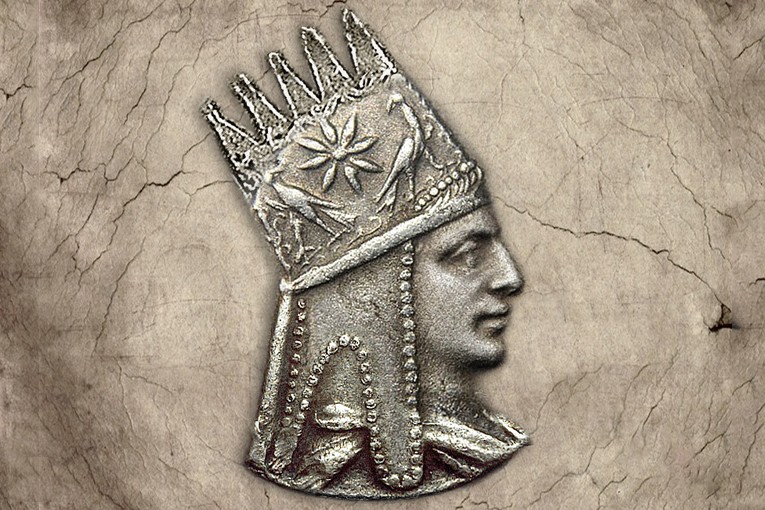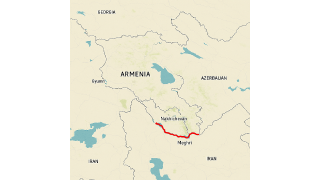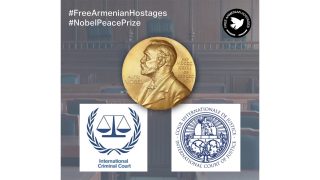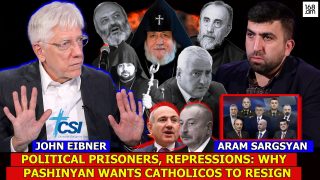
Returning to greater Armenia: civilizational path of Armenians

The history of mankind is a constant ideological conflict and struggle of peoples that created mighty empires to achieve world domination. Empires aspired to have control over resources, seizing new territories and integrating other peoples in their state system. Small ethnic groups that were able to form their elite and make a true civilizational choice, entered the XXI century as independent entities with their own interests and instruments for their implementation. In turn, some nations with underdeveloped national immune system were dissolved in large supranational projects, becoming political and civilizational parts of alien worlds. It is my deep conviction that every nation that hopes for self-development and great future should identify itself very clearly. The Armenian people – one of the oldest in history – stood at the origins of Indo-European civilization. Numerous studies show that many empires of the past and present (the Anglo-Saxon, European and ones of the Middle East) were subjected to Armenian influence.
For hundreds of centuries, Armenians have fought wars, creating powerful states, which are still thoroughly studied by historians, analysts and political scientists around the world. Being founders by their nature, Armenians were the core of the empire, attracting and dissolving other ethnic groups. In other words, back in ancient times, the political and civilizational code of Armenians was formed. Thus, it predetermined our destiny. So, who are we – Armenians of the XXI century? Many answers will be given to this fundamental question, because its nature is extremely subjective. Everyone implies his or her ideological elements, trying to explain why one considers him- or herself a representative of a certain ethnic group. Based on this, I do not claim to say the objective truth. Moreover, I am convinced that it does not exist at all. I was looking for my identity, responding to a huge number of small questions that brought me to the main one: “Who are we?”
Our roots go deeply into antiquity. We are taught that our ancestors created and ruled Greater Armenia – the powerful empire that stretched from the Mediterranean to the Caspian Sea coast. We are also taught that our ancestors were brave warriors, gifted speakers, skilled politicians and great scientists. We have not a single reason to doubt it as only exceptional people could create a historical legacy that would live for thousands of years. However, there is still one question in my mind: can we consider ourselves a continuation of that Armenian nation? From a purely scientific point of view, we certainly can. Nevertheless, we have not borrowed the most crucial thing from our great ancestors. Yet that is our civilizational mission. The very mission that was supposed to be our guide and compass on the way to the future. Having lost the connection between the physical and spiritual nature of existence, we got puzzled and, finally, surrendered control over our worlds and destiny. Our mission was in global creation. However, it was possible, when our people had the necessary resources that made the rest of the world reckon with our opinion and respect our living space.
Do we set the goal to return to our mission today? Unfortunately, we do not. Do we set the tasks that could contribute to unifying all the different parts of the Armenian world? Unfortunately, we do not. Thus, as for now, we do not have the full right to consider ourselves the successors of those who knew their mission and truly solved the problems of the entire civilization. However, I have no doubt that we must return to the path that was chosen by our ancestors thousands of years ago. We mistakenly believe that Greater Armenia was lost and can never be revived. Yet, empires are characterized by such a peculiar quality as universality and continuity in space and time. The theory of “the transfer of an empire” (translatio imperii) says that an empire is more about metaphysical and transcendental essence rather than about the territory only. According to this theory, an empire may die as a territorial unit, but at the same time, it may transfer its ideas and unfinished mission to the new state formation through religion, culture and philosophy.
For instance, China, Russia and Turkey as territorial entities are no longer considered classic empires of the Qing Empire, Tsarist Russia / the USSR and the Ottoman Empire, respectively. However, these countries are still obsessed with their messianic ideas: Sinocentrism (China is the center of the universe), “Moscow is the Third Rome” and Ottomanism / Pan-Turkism. As I mentioned before, we have our own mission. Greater Armenia will reborn in the very moment when all of us start to believe in that and realize our common mission. Moreover, it seems to me that there is no alternative way. Armenians around the world are proud of their history and achievements of their ancestors. The map of Greater Armenia is imprinted in our minds and hearts, and that is why our sacred mission is still alive. Does not this explain the reason why young men from different countries returned to their motherland to liberate Artsakh – one of the scattered parts of our great country. They perceived that war as a chance to return to their roots. The liberation war awakened various parts of the Armenian world and joined its huge potential, which allowed to win on the battlefield.
For the first time since the period of Tigran the Great, we won because we believed in our strength and understood our possibilities. We overcame the fears that were deeply rooted in our minds after the Genocide and loss of most of the territories of our Empire. That victory was the most important because it managed to break through hundreds of psychological barriers which blocked the way to our unification and revival. Triumph of Armenian spirit in the struggle for Artsakh was the achievement of the older generation and was inspired by the liberation movement of Armenian fedayees during the Genocide period. Now the baton is handed to us. What will we leave behind?
It is too early to say about the final victory. We should have no illusions: we will be able to close the Artsakh issue only after the complete capitulation of Azerbaijan. To achieve this, we need to reconsider our political philosophy. Once again we started to think in terms of fears that lead to wrong decisions. We are forced to think in object categories, suggesting that we will be destroyed without any help from others. However, there is no point in denying the fact that Armenia is in a difficult political and economic situation. For twenty-five years of independence, we have not managed to build up a national strategy for creation of the Armenian transnational political nation.
Scientists, politicians and journalists often talk about the need to unify Armenia and Diaspora. At the same time, no one asks the question: “Can we actually talk about a unified Diaspora?” The reality is that we have different ethnic communities and enclaves in various parts of the world. As a rule, political, party and business clans worldwide are cut off from ordinary people and obsessed with their own narrow goals. In addition, we should not forget that these people are citizens of the United States, France, Russia, Ukraine, Italy, Iran, etc. We should not be misled by their ethnic origin and their claims about patriotic feelings. Many of them may do great harm to Armenia lobbying the interests of their countries of residence. Sometimes they even do it quite consciously.
In most cases, we simply become pawns in the hands of others. We are constantly convinced that it will be better for Armenia to be engaged in an alliance with their state, which implies vassal role for us. Why is it happening? Other countries have assured us that we are a small and weak state, that we need their protection. These suggestions are aimed to involve some of the banal human instincts. It would not be surprising if I say that everyone tends to be on the side of strength and greatness. America, Russia and France – these are great powers, so it is kind of honorable to be an American, Russian or French citizen. Well, it is so easy to be a part of a great power, which was not built by your ancestors. However, it is much more difficult to accept our existing reality.
Can it be changed? Certainly, it can. However, to achieve this, we must connect all the Armenian-centric elements worldwide and direct them to our primary objective – building a strong and independent Armenia. When Armenians all over the world see the state capable of defending the interests of its citizens firmly and consistently, many of us will return. Basically, there is no need to spend much time trying to attract everybody and awaken the patriotic feelings of every single Armenian. We missed the chance to institutionalize the Armenian world, which united around the struggle for the liberation of Artsakh. Now we have to work with the new generations that carry the spirit of the warriors and winners. Greater Armenia is not just the territory: it is the ideology and basic foundation of our nation. We will not be able to solve our local problems successfully unless we return to our civilizational path.
Any civilizational strategy should be based on the philosophy of values. They can help us understand the meaning of our existence and specify the correct way of development. It is important to realize that our search for the guidelines should not be formed solely on opposing ourselves to local worlds or global conjuncture. We live side by side with such countries as Turkey and Azerbaijan, which set a clear and precise goal – to destroy the Armenian heritage once and for all. It is a mistake to believe that they are going to do that only by classical methods of physical destruction as there are numerous objective and subjective constraints against such actions. Moreover, there is no practical need in that. History has demonstrated quite clearly that it is pointless to try to conquer or enslave resistant people. There are more important battles in the current wars: today rivals struggle for the minds and hearts of people.
The rulers of the Ottoman Turkey failed to dissolve Armenians in their civilization and to demolish our legacy by destruction and enslavement of our living space. We can face our enemies on the battlefield hundreds of times. However, they know that any war will only strengthen us spiritually and physically. What is more, any military conflict will mobilize all our capabilities. Let us ask a simple question: “Are our enemies going to destroy our world and civilization with the means of series of wars?” I am deeply convinced that our rivals have a different purpose – to create conditions in which we would weaken our position and surrender the remains of our precious heritage without a fight. The great Chinese philosopher Sun Tzu wrote that the best of the best is to conquer the hostile army without fighting. And what is the Armenian army today? Actually, it is every Armenian person anywhere in the world that feels the responsibility to the homeland of his or her ancestors. Armenian army is everyone regardless of what we are: soldiers and officers, scientists and artists, doctors and engineers, businessmen and builders, etc. We are the defenders of our civilization, and each of us has his or her front of struggle.
The person’s intellectual capital is a huge force, which can be found in our country and people. Creating conditions for potential disclosure and usage of that capital for the benefit of our civilization is the only recipe for the survival of our nation. The enemy knows that accumulation of that capital will lead to growth and strengthening of our statehood. It should be understood that a five thousand immigration from Yerevan to Istanbul represents a greater threat for us than a five hundred thousandth Turkish army. We must think deeply and broadly, assessing the long-term consequences of our own mistakes. Hence, quite a fair question comes to my mind: «Who should be engaged in devising of that strategy?» Again and again, the answer is quite simple – everyone.
The next question that comes logically from this response: “How?” It is not that we all will take turns to sit next to the president and give him advice. I say that each of us possesses an invaluable tool – the right to vote. It makes no sense to argue on jurisprudence and deliberative system of relations between the people and state. Everything is much simpler: any political power and elite is a reflection of the society and the result of our deep attitude to the country. Sometimes it takes much time to understand this. However, most often we are just afraid to admit it because it is much easier to find other excuses.
What is the reason for that? Indecisiveness, inner fears or external factors? I think it makes sense to talk about a whole complex of factors and reasons. Nevertheless, the main problem, in my opinion, is psychological. We live in the era of capitalism, and there is no point in trying to change it. In this regard, it is important to build our civilizational strategy in a pragmatic way, taking into account all the facts and real conditions. Large states with significant resources can afford to place materialism in the summit of their public interest. For small nations, such an approach is deadly dangerous. Unfortunately, we began to convert any value to the “profit”, either financial or reputational. Today, our national issues are all used by certain elite groups for specific dividends.
We often speak scornfully of those countries and nations that do not recognize the Genocide of 1915-1923 in the Ottoman Turkey. When talking about others, we use such value terms as justice, humanity, benevolence, etc. But why don’t we demand these values from ourselves? I am sure that our main value reference point is protection of interests of the Armenian statehood and our heritage. Everything is fine with personal ambitions: they should help us become the best specialists in our profession. Still, these aspirations should be directed to the common good, when we talk about our civilization. Fighting against each other, we help the enemies to divide us and use it to solve their problems. Strong and small nations that will be able to bring up the new generations basing on this concept will survive. On the contrary, those who will not cope with that mission will perish. I believe that strong Armenians are the nation that is responsible for itself, its fate and civilization. In turn, the weak Armenian people will be imprisoned by solely materialistic and consuming notions. That kind of nation only wants “to have”, but not “to be”.
Lack of understanding that the “common” is always more important than “personal” indicates deep spiritual sickness of society and hinders the formation of civilizational strategy. The term “common” refers to our millennial heritage, and the only guarantor of its survival is the strong Armenian state. When I say “personal”, I mean material things that each of us possesses. So, what is more important and what is right: to risk the “common” heritage for the sake of multiplying personal wealth or to direct the “personal” to strengthen and increase the “common”? Let everyone answer this question.
Areg Galstyan, Ph.D., is a contributor to The National Interest, Forbes, The American Thinker and The Hill. The head of the “American Studies” Research Center























